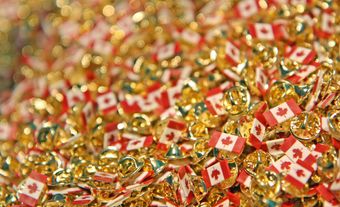Trademarks
A trademark is a word or design used to indicate the business and association with which it is used. It is a shorthand way in which the public may begin to associate with a particular product or service. Marks indicate the quality or characteristics that a consumer may expect to be associated with that particular mark.
Registration of a Mark
Canada has a statute which allows the registration of a mark. If the mark is successfully registered, the owner has the exclusive right to the use of the mark throughout Canada, and the owner may use the remedies for infringement contained in the Trademarks Act.
There are 2 types of trademark: a word or words used to identify the wares and services of one manufacturer, or a design mark which may be a combination of design or stylized word; a certification mark is a special type of trademark reserved for special entities who certify that the user of the mark has met certain standards or guidelines. The most common of these marks is the CSA Approved stamp used especially on electrical goods.
A mark must be distinctive of the wares and services of its owners. It would be unfair to allow one proprietor to gain exclusive control over particular words and therefore certain marks may not be registrable at all; for example, merely the name of a living person or one who has died within the last 30 years; or the name of the wares or the services in English and French, to give 2 examples.
The application for registration is examined to ensure that the mark does not cause confusion with existing marks or attempt to gain greater exclusive rights over the words than is appropriate. If the initial test is satisfied, the mark is advertised so the public may comment and the mark may then be registered. Publication is important, in that after 5 years of use, no other user may argue that they used the mark before the registered owner and should be allowed to continue to do so.
Exclusivity
The Trademarks Act sets out that the registered owner is the exclusive owner of the mark and that any person who uses a confusing mark may be prohibited from doing so. The owner may also sue if the mark is used in a way which depreciates the value of the good will attaching to it (section 22), or if the use of the mark is in a misleading or improper commercial practice (section 7).
There are special provisions which allow the mark to be licensed to other users, provided that the conditions of use and the relationship between the parties is disclosed (section 50).
The registry system is under the control of the Registrar of Trademarks, and the integrity of the register is further reviewed by the Federal Court of Canada.
Marks are an essential tool in the marketing of wares and services and in promoting the identity of business.

 Share on Facebook
Share on Facebook Share on X
Share on X Share by Email
Share by Email Share on Google Classroom
Share on Google Classroom

